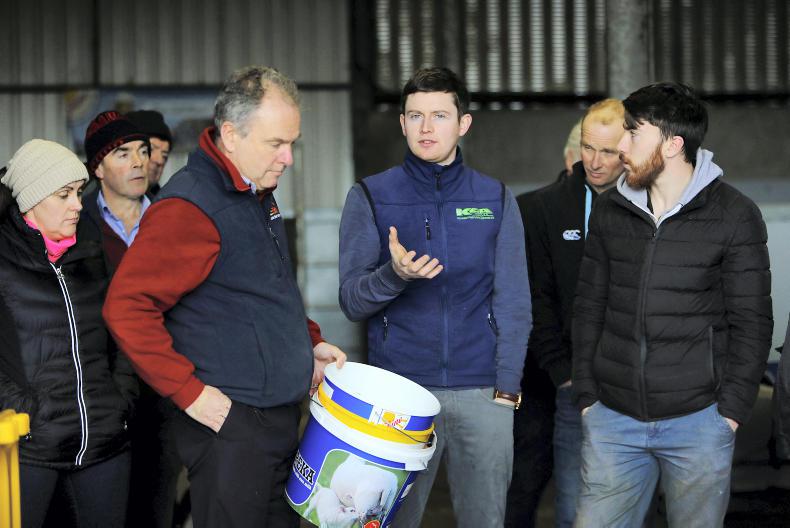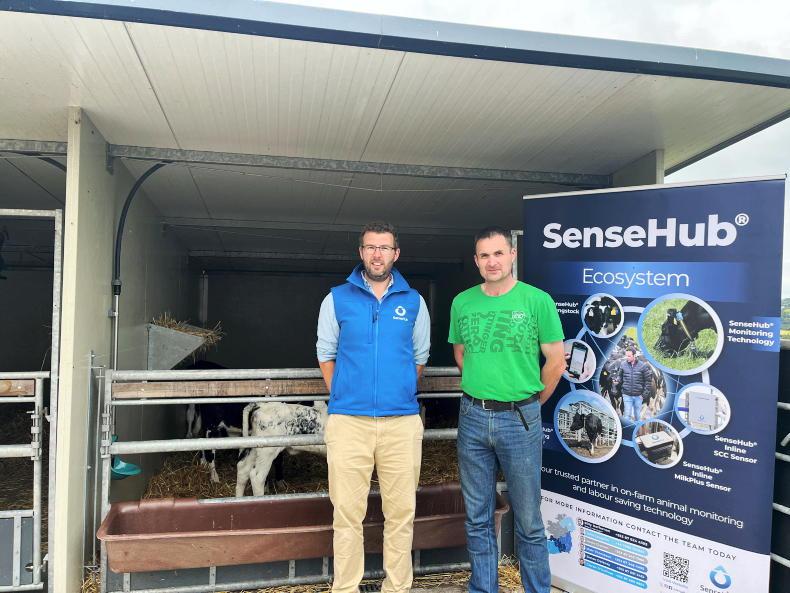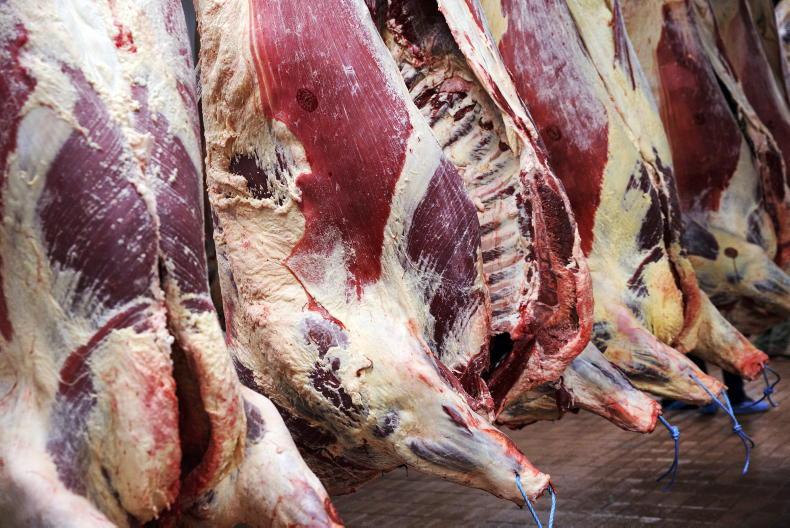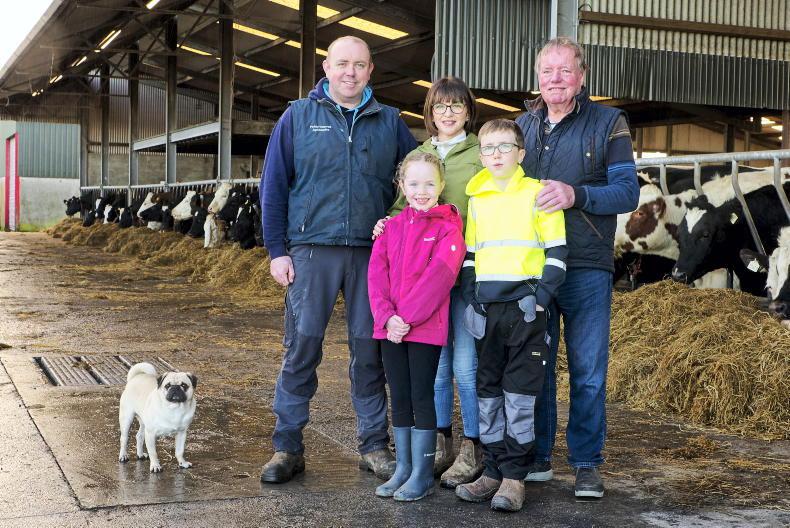The Kerry farm walks were held on the farms of Frank and Joe Keane, Ballingar, Lixnaw, and Pat Moynihan, Knockdurath, Co Kerry.
Adam Heffernan, from Kellihers Feeds & Agri Supplies, Tralee, began by speaking about preventative management and how to reduce infection pressure in calf houses.
Once the calf house has been spotlessly cleaned, his message was to follow a step-by-step plan for disinfection:
Foam everything with Kenosan followed by disinfection with Kickstart. Let the houses and equipment dry out. Foam the floors, walls and feed troughs abundantly with a 4% solution of Kenocox until the floor is wet (400ml/m2) paying special attention to all surfaces that might come in contact with animals, including damaged or worn floors/walls. Allow a minimum contact time of two hours. Feeders and water troughs only need to be rinsed and disinfected.Adam later gave a live demonstration of the foaming process and the importance of the contact time needed to kill cryptosporidium, coccidiosis and E coli.
Dr Christine Cummins of Bonanza Calf Nutrition said that colostrum management for newborn calves remains a problem on many farms.
Cummins stressed that it is vital that the calves take in three to four litres of good-quality product as soon as possible after birth.
Bonanza Calf Nutrition has formulated Transformula, a skim (60%) and whey milk replacer using milk protein with added immunostimulants and probiotics for feeding calves in the first days of life.
This is similar to cows’ transition milk with probiotics to strengthen the gut against the main diseases while also boosting immunity.
Tom Warren from Bonanza Calf Nutrition followed this discussion by saying that now was the time to have an ample supply of clean buckets and equipment organised and ready before calving.
Tom also highlighted that the basics can often be overlooked, making the point that incorrect measures may be assumed with different people feeding calves.
This risk is greatly reduced by moving to once-a-day feeding along with the following benefits:
A huge labour saving without any additional cost of investment. A farmer rearing 40 calves once a day can save 50 hours of work. The time saved allows for increased attention to detail when it comes to other calf rearing areas such as housing, bedding and illness.John Lynch form Kellihers Feeds & Agri Supplies agreed with Tom that there is less stress on farms with calves on once-a- day milk replacer.
The Kerry farm walks were held on the farms of Frank and Joe Keane, Ballingar, Lixnaw, and Pat Moynihan, Knockdurath, Co Kerry.
Adam Heffernan, from Kellihers Feeds & Agri Supplies, Tralee, began by speaking about preventative management and how to reduce infection pressure in calf houses.
Once the calf house has been spotlessly cleaned, his message was to follow a step-by-step plan for disinfection:
Foam everything with Kenosan followed by disinfection with Kickstart. Let the houses and equipment dry out. Foam the floors, walls and feed troughs abundantly with a 4% solution of Kenocox until the floor is wet (400ml/m2) paying special attention to all surfaces that might come in contact with animals, including damaged or worn floors/walls. Allow a minimum contact time of two hours. Feeders and water troughs only need to be rinsed and disinfected.Adam later gave a live demonstration of the foaming process and the importance of the contact time needed to kill cryptosporidium, coccidiosis and E coli.
Dr Christine Cummins of Bonanza Calf Nutrition said that colostrum management for newborn calves remains a problem on many farms.
Cummins stressed that it is vital that the calves take in three to four litres of good-quality product as soon as possible after birth.
Bonanza Calf Nutrition has formulated Transformula, a skim (60%) and whey milk replacer using milk protein with added immunostimulants and probiotics for feeding calves in the first days of life.
This is similar to cows’ transition milk with probiotics to strengthen the gut against the main diseases while also boosting immunity.
Tom Warren from Bonanza Calf Nutrition followed this discussion by saying that now was the time to have an ample supply of clean buckets and equipment organised and ready before calving.
Tom also highlighted that the basics can often be overlooked, making the point that incorrect measures may be assumed with different people feeding calves.
This risk is greatly reduced by moving to once-a-day feeding along with the following benefits:
A huge labour saving without any additional cost of investment. A farmer rearing 40 calves once a day can save 50 hours of work. The time saved allows for increased attention to detail when it comes to other calf rearing areas such as housing, bedding and illness.John Lynch form Kellihers Feeds & Agri Supplies agreed with Tom that there is less stress on farms with calves on once-a- day milk replacer.










SHARING OPTIONS